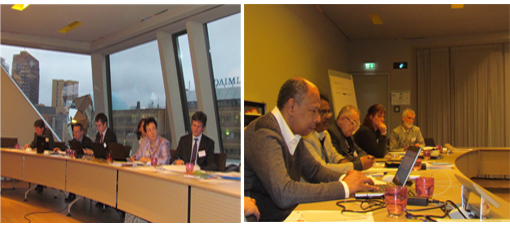As part of the wider agenda on enhancing aid effectiveness facilitated through GFAR in the context of the GCARD Roadmap, we are convening a Stakeholder Workshop on Tracking Investments in Agricultural Research for Development, at the offices of GIZ in Berlin on 20 January 2012 after the Global Donor Platform for Rural Development (GDPRD) General Assembly and Board, scheduled from 17 to 19 January 2012. A preliminary discussion on this topic will take place in the GDPRD meeting on 18 January.
The absence of an up-to-date database of accessible and usable information on donor support and national investments has been identified as a major obstacle to improvement in the alignment and harmonisation of substantial donor resources. A number of initiatives and organizations including FARA, IFPRI-ASTI, EIARD, and GDPRD have engaged in assessing the current situation and identifying the rationale behind underinvestment in AR4D. Most recently, the Agricultural Science and Technology Indicators (ASTI) programme of IFPRI, together with the Forum for Agricultural Research in Africa (FARA) convened a conference on agricultural R&D investments in Africa, which has itself thrown up many questions about determining investments and returns in this sector.
This technical workshop will bring together the organizations tracking investments in agricultural innovation systems (including agricultural research, extension, education and small enterprises), to determine what is currently known about the nature and scale of investments and capacities in these sectors, the status of the worlds innovation systems and how this data can help stimulate appropriate and effective investment.
Organized by GFAR in conjunction with EIARD and GDPRD, the workshop will examine existing analyses to get an overall picture and understand the key constraints and limitations of each approach with the objective of agreeing on action points that will lead to more integrated AR4D investment and programme tracking mechanisms, taking into account the strengths and weaknesses of existing systems and user requirements. This would include an understanding of the ‘political economy’ underpinning motivations of aid recipients and providers, as well as aid data users and providers at different levels. The meeting will also examine incentives for documenting investments and capacities and blockages in existing systems, and what is preventing their better coordination within and between institutions.
Please find attached the presentations from the workshop below.
Summary Report of the workshop is available here.

